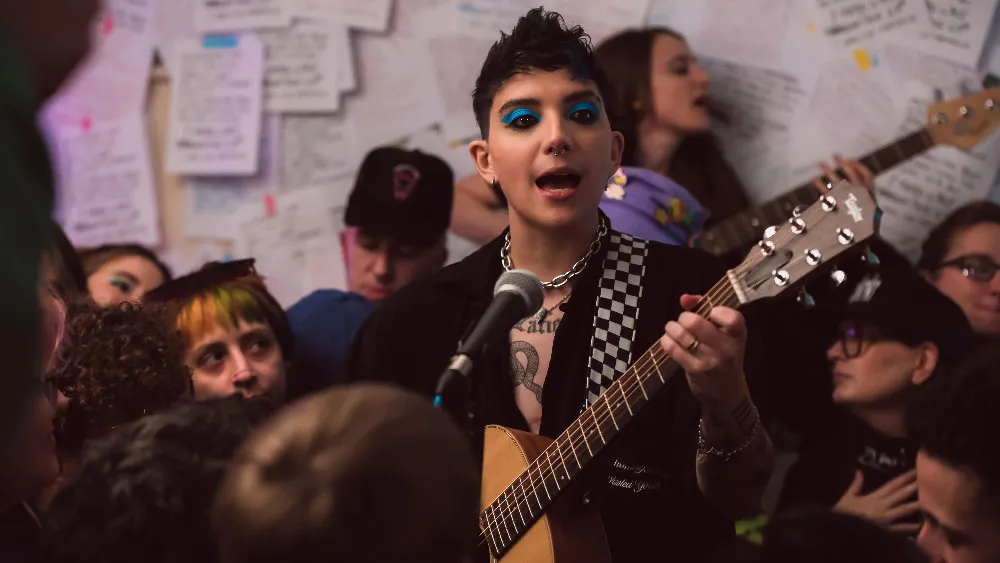October 25, 2014
When A Mask Is Not A Mask
Kilian Melloy READ TIME: 3 MIN.
Halloween is certainly one of my favorite holidays and it seems to be one of the favorites of the gay community, as well. Indeed, there are few nights that are bigger than Halloween night in gay clubs across America and it also is an excuse to show skin that has not been out since this past summer's Pride.
There are a lot of components that make Halloween a special holiday, but perhaps none are as important as the ability to don a costume and to be able to pretend to be someone or something else, without people thinking you are insane or caught up in delayed adolescence.
While costumes can be a lot of fun, they have also become a source of contention -- particularly among we millennials who are supposedly more culturally savvy and progressive than our predecessors. Halloween allows adults to "play" once again and get a little naughty, behavior is condoned on Halloween and it is almost like a smaller, tamer version of Pride. However, one issue has kept some people from being able to feel safe and comfortable, preventing them from just being able to let loose. That issue is racially insensative costumes.
The issue has been raised on various social media outlets and last year, there was an online awareness campaign with the slogan "My Ethnicity is NOT a Costume." Clearly, we still have some work to do in order to make Halloween safe and fun for everyone.
This problem is not limited to straight white girls in geisha gear or frat boys rocking sombreros and riding an inflatable donkey. This type of "diet racism" has infiltrated the Halloween celebrations of the LGBT community as well and it is time to have a productive conversation regarding the issue.
I remember sitting in a popular bar last Halloween and watching as patrons poured in, checking out the hot guys in their various combinations of underwear and costume accessories and then my eye fell on a couple. By all accounts they were gorgeous. The white man was beautiful, muscled and dressed as a cowboy, complete with toy gun. His partner, a beautiful man of color, Latino or Native, was dressed as a "Native American," complete with loincloth, war paint, and tomahawk.
It was in that moment that I began to recognize how pervasive the issue of race can be in our community, and how we can inadvertently celebrate and inflict racist violence whether physically or emotionally and not even recognize that we are doing it. Indeed, the man of color saw nothing wrong with portraying native people as a caricature pulled from a time long ago. The white guy was just out with his boyfriend, trying to have a good time, and certainly did not intend intentional harm by complementing his partner's costume with his sexy cowboy outfit. The problem however, is that by basically portraying one race's genocide as something sexy, enjoyable and fun, no matter how far away, we contribute to erasing that history. Allowing us to more easily ignore the legacy that history has left behind.
By minimizing traumatic and violent historical events through caricature, we can more easily ignore the real plight of Native people's today -- people in the U.S., who by and large live in conditions that resemble the Third World.
Indeed, many of the costumes that caricature communities of color hearken back to terrible and shameful moments in our nation's history and they send a clear message to communities of color that we could not care less about that painful history or its terrible legacy. Imagine if straight people caricatured us this Halloween. We would be hurt and outraged. We need to apply that same standard to racist costumes even when our intentions are just to have fun. Let's work hard this Halloween to ensure that every member of our community feels safe, supported and valued.
Kilian Melloy serves as EDGE Media Network's Associate Arts Editor and Staff Contributor. His professional memberships include the National Lesbian & Gay Journalists Association, the Boston Online Film Critics Association, The Gay and Lesbian Entertainment Critics Association, and the Boston Theater Critics Association's Elliot Norton Awards Committee.

 Copyright Rage Monthly. For more articles from Rage visit
Copyright Rage Monthly. For more articles from Rage visit 
